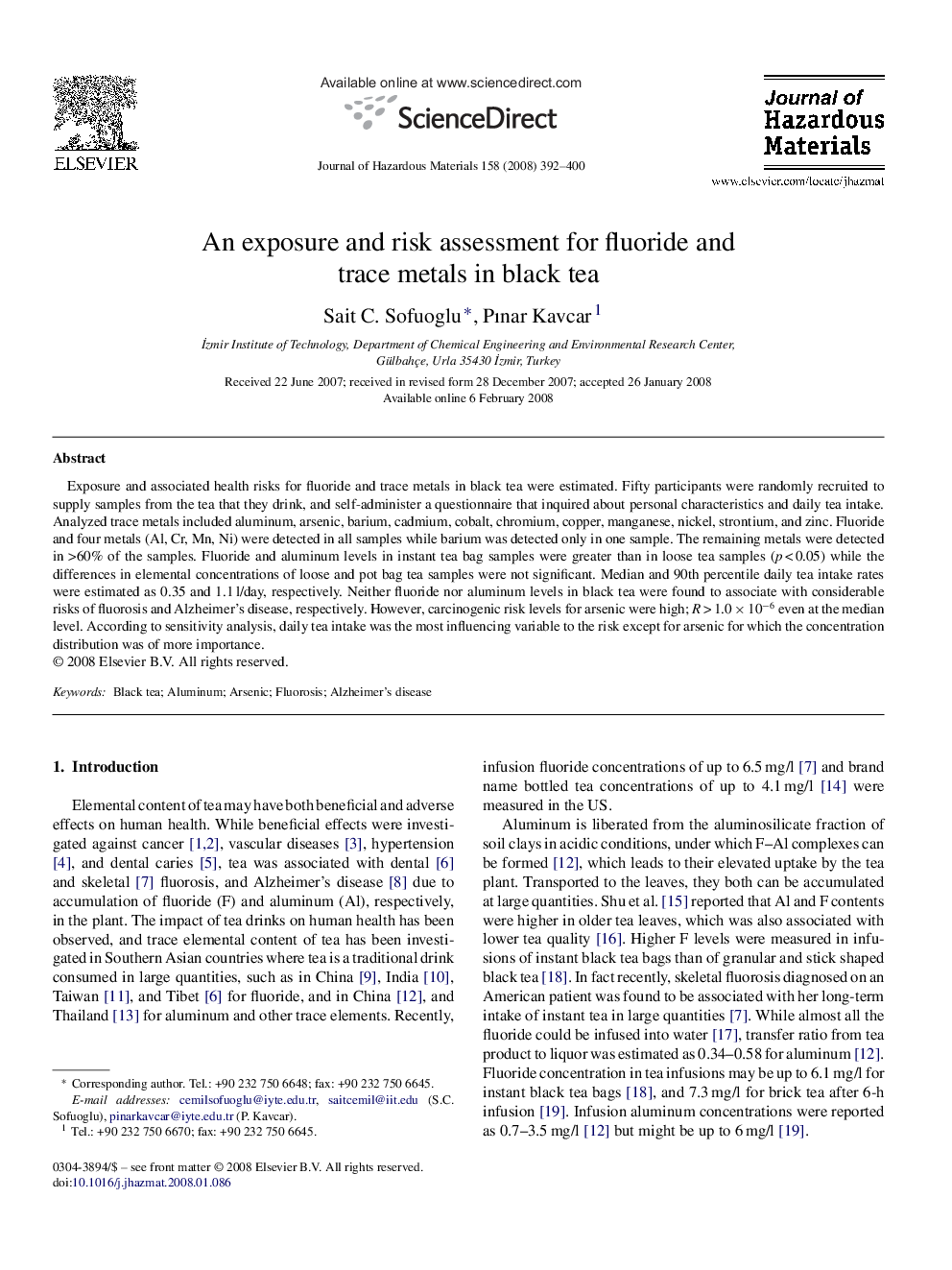| Article ID | Journal | Published Year | Pages | File Type |
|---|---|---|---|---|
| 583302 | Journal of Hazardous Materials | 2008 | 9 Pages |
Abstract
Exposure and associated health risks for fluoride and trace metals in black tea were estimated. Fifty participants were randomly recruited to supply samples from the tea that they drink, and self-administer a questionnaire that inquired about personal characteristics and daily tea intake. Analyzed trace metals included aluminum, arsenic, barium, cadmium, cobalt, chromium, copper, manganese, nickel, strontium, and zinc. Fluoride and four metals (Al, Cr, Mn, Ni) were detected in all samples while barium was detected only in one sample. The remaining metals were detected in >60% of the samples. Fluoride and aluminum levels in instant tea bag samples were greater than in loose tea samples (p < 0.05) while the differences in elemental concentrations of loose and pot bag tea samples were not significant. Median and 90th percentile daily tea intake rates were estimated as 0.35 and 1.1 l/day, respectively. Neither fluoride nor aluminum levels in black tea were found to associate with considerable risks of fluorosis and Alzheimer's disease, respectively. However, carcinogenic risk levels for arsenic were high; R > 1.0 Ã 10â6 even at the median level. According to sensitivity analysis, daily tea intake was the most influencing variable to the risk except for arsenic for which the concentration distribution was of more importance.
Related Topics
Physical Sciences and Engineering
Chemical Engineering
Chemical Health and Safety
Authors
Sait C. Sofuoglu, Pınar Kavcar,
